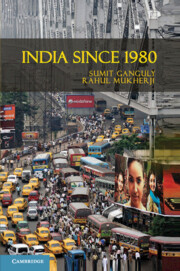1 - Four Revolutions and India's Future
Published online by Cambridge University Press: 05 June 2012
Summary
For the better part of the past three decades the Indian polity has been in the throes of four revolutionary changes. They are in the realms of political mobilization, secularism, foreign policy, and economic policy making. These transformations have not moved in tandem but have overlapped with one another. Nevertheless, they collectively represent a steady and potentially fundamental remaking of many features of the Indian political landscape.
Of the four transformative movements, the social revolution in India has been in the making for perhaps the longest time span. It involves the rise of India's lower castes especially in northern India, from what Marx once referred to in another, but related, context as “the sleep of ages.” Such a revolutionary upsurge had already taken place in southern India during the 1960s. Now through the process of growing media exposure, increased literacy, and, above all, through participation in local, regional, and national elections, India's hitherto dispossessed are finding their political voice. Since the 1980s this process has accelerated and altered the texture of Indian politics dramatically by throwing into disarray long-held assumptions about the predictable voting behavior of the lower castes. Instead of routinely turning to the once-dominant Congress Party, lower-caste voters have demonstrated much-greater independence and have switched their loyalties to local, ethnic, and regional parties. Accordingly, their political unpredictability has made and unmade governments at state and national levels. There is little reason to believe that this growing political sophistication will come to a close in the foreseeable future.
- Type
- Chapter
- Information
- India Since 1980 , pp. 1 - 17Publisher: Cambridge University PressPrint publication year: 2011

